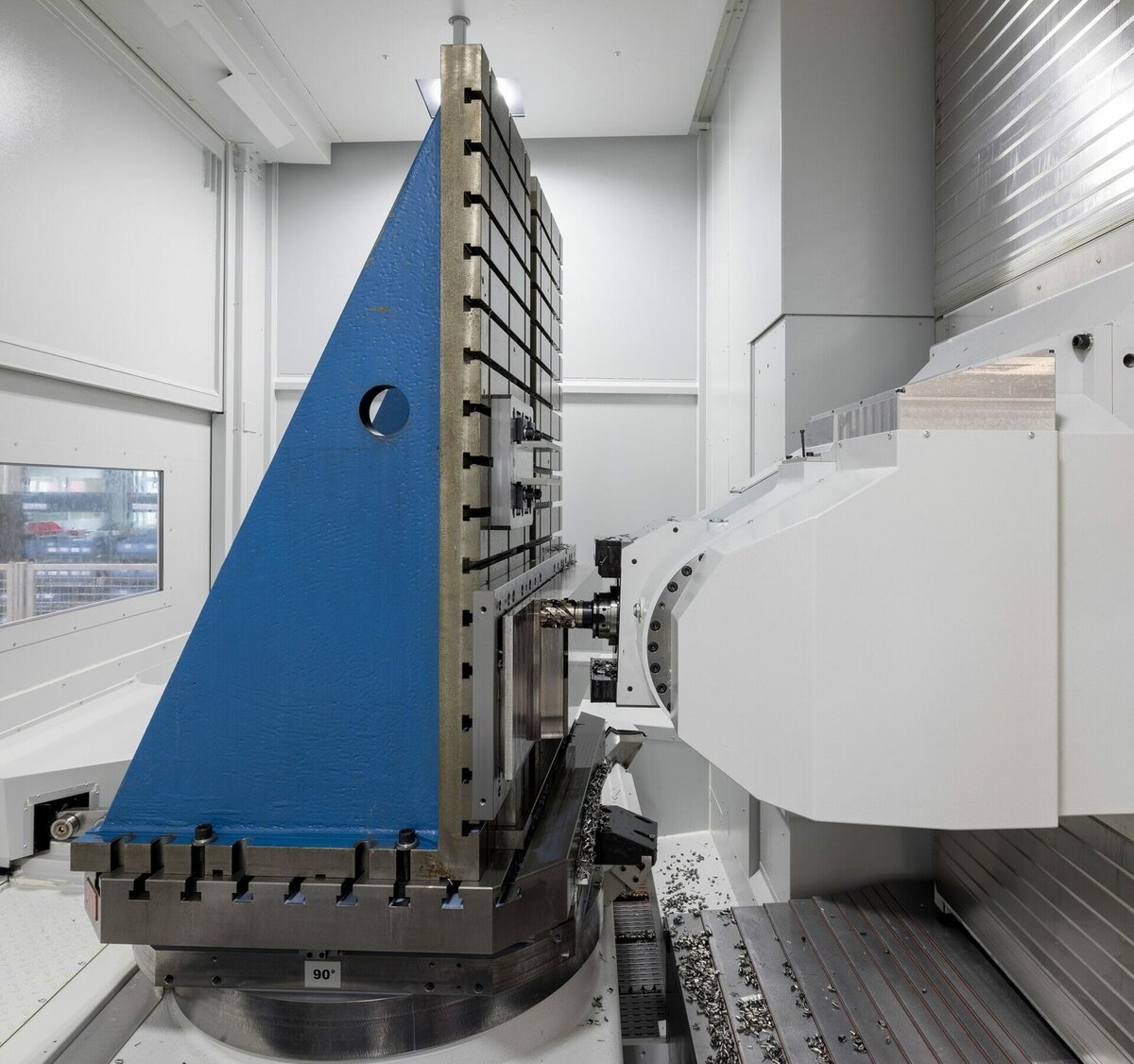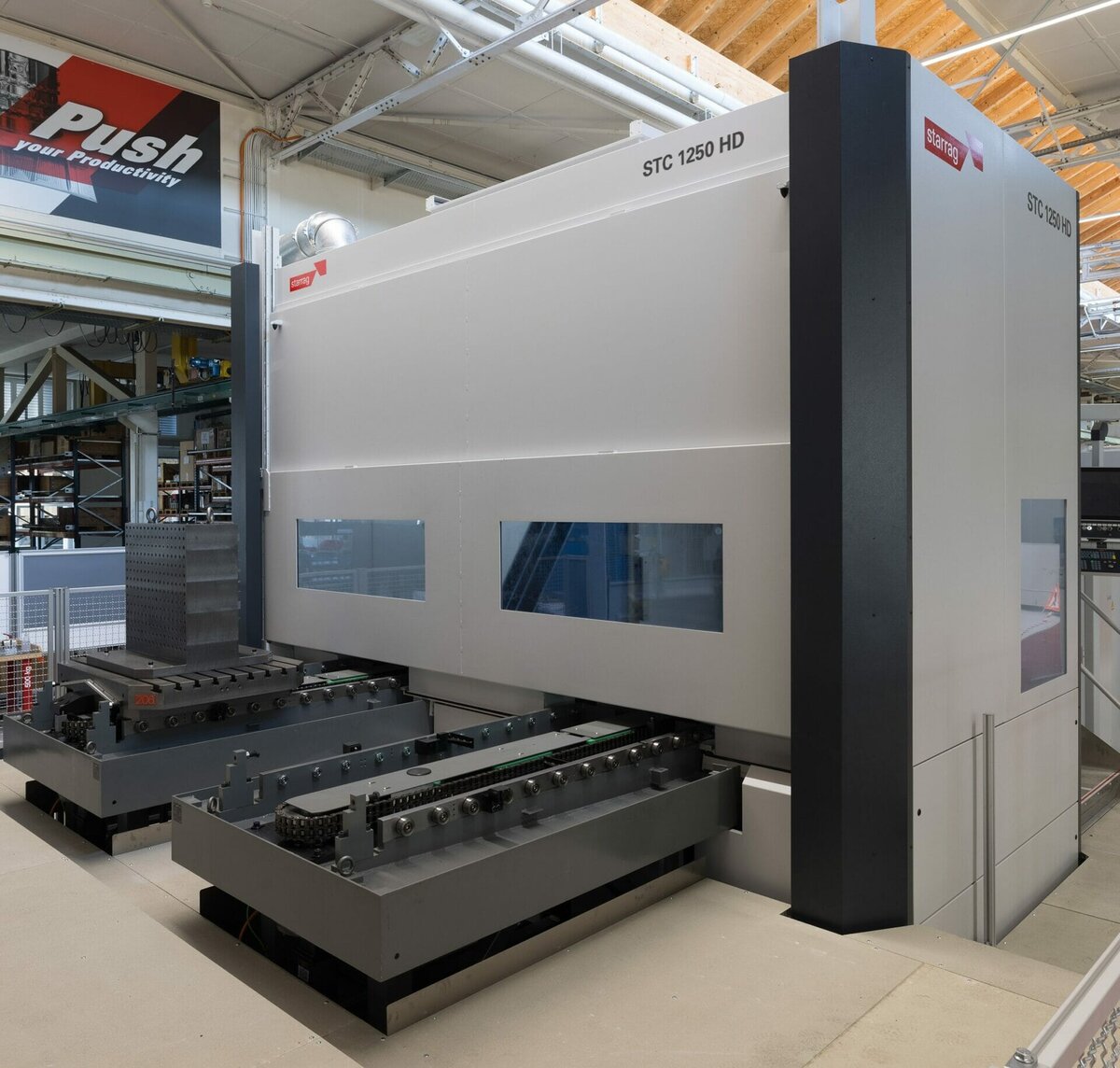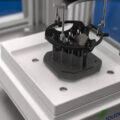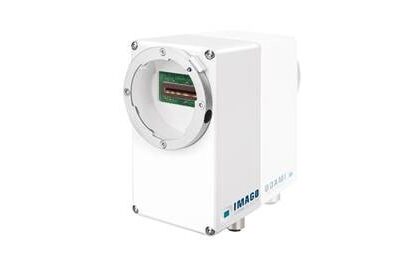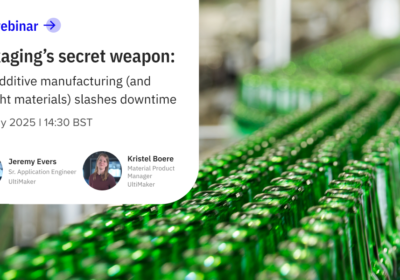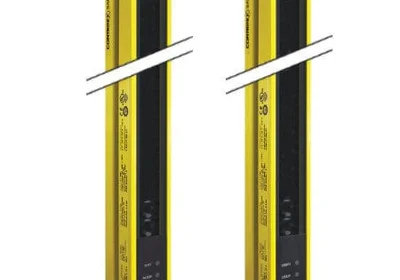Push Your Productivity was the theme this year of Starrag’s Tech Days – a manufacturing extravaganza open house at the company’s headquarters in Switzerland. Numerous machines and complementary manufacturing technology demonstrations highlighted how customers can benefit with shorter lead times and lower piece part costs from Starrag’s world supremacy in the machining of aero components such as blades, blisks, impellers, casings and structural parts.
The 250 plus visitors from 17 countries witnessed a seemingly endless flow of manufacturing expertise to help them achieve bottom line savings in the production of such workpieces, and not least:
- The launch of the new ultra-rigid and robust titanium-cutting horizontal machining centre, the STC 1250 HD, the first machine in its class with hydrostatic guideways boasting zero friction/non-stick/slip in the X axis. The result is unmatched roughing times and dynamic, precise finishing of parts – reducing roughing times by over 50% in some instances. In addition, the machine’s higher acceleration and jerk rates lead to more dynamic finishes and frictionless/no micro-vibration in the guideways leads to more precise parts.
- An Ecospeed F machining centre – the latest addition to the machines in the facility’s Aerospace Competence Centre – with integrated Sprint Z3 parallel kinematic machining head which, for example, contributes to savings in machining time for an interior aerostructure part from 14 hours to just three hours and 40 minutes.
- Simultaneous five-/six-axis machining of landing gear parts on large-capacity mills, focusing not only on improved cutting of complex shapes in difficult materials but also on the challenges of producing higher volumes (using automation) often in new materials (in response to the impact of ReAcH regulations) and, as always, under extreme price constraints.
- Inside the STC:1250 HD’s working zone
- The new STC 1250 HD
There were presentations of how Starrag machines can improve productivity including how a Droop + Rein FOGS machining centre is meeting the challenges of machining and matching aluminium alloys and carbon fibre parts to an accuracy of 55 microns over a machining envelope of 22 m3, and of a 65 mm bar-fed LX 021 machining centre producing variable guide vane blades measuring 115 mm long and having aerofoil lengths of 70 mm and chords up to 21 mm wide. The machine was performing, facing, profiling, mill finishing and groove turning in a cycle time of just 21 mins, and it featured milling force monitoring via a ProMicron system.
Also, a TTL software animation showed how the software can effect a blade repair at 20%-30% the cost of a new blade, plus details of a new spindle drive unit, an 18,000 revs/min HSK-100 for all-round metals machining – complemented by an array of complementary technologies being demonstrated by the companies which ‘partnered’ Starrag for the event.
Siemens demonstrated its Sinumeriuk CNC system with Digital Twin software which effectively creates a closed loop between digital design, machining simulation, CAD/CAM and post-processing to not only minimise the programming of complex parts but also to eliminate costly material test cuts.
Caron Engineering showed how its Tool Adaptive Control system can run tools at up to 25% higher rates and extend tool life by up to 25% by process monitoring via sensors for power usage, vibration, and coolant pressure and flow, for example.
Hexagon Metrology hammered home the ‘time costs money’ message while demonstrating its NC Measure machine tool probing/measurement/toolsetting expertise that integrates the results from a multi-sensor radio wave receiver. Interestingly, ultrasonic wall thickness measurement was shown to an accuracy of 10 microns – and it ‘ignores’ any workholding that may encroach – and on-machine laser scanning can automatically inspect and compare workpieces against CAD models.
Live demonstrations showcased the impressive capabilities of the new STC 1250 HD on titanium using porcupine, face and rigid milling tools, and how its 12-tonne column can be easily moved by hand! The machine – the first in its class featuring hydrostatic guideways with zero friction/non-stick/slip in the X axis (so, no wear and reduced maintenance compared with conventional box guideways) achieved unmatched roughing times and dynamic finishing of resulting more precise parts – indeed, it is capable of reducing roughing times of structural parts by over 50%.
On one test part – a frame door forging of Ti6A14V and measuring 80 mm deep x 300 mm wide and 1,220 mm long – the machine’s roughing and machining time savings also demonstrated a 33% reduction in energy consumption.
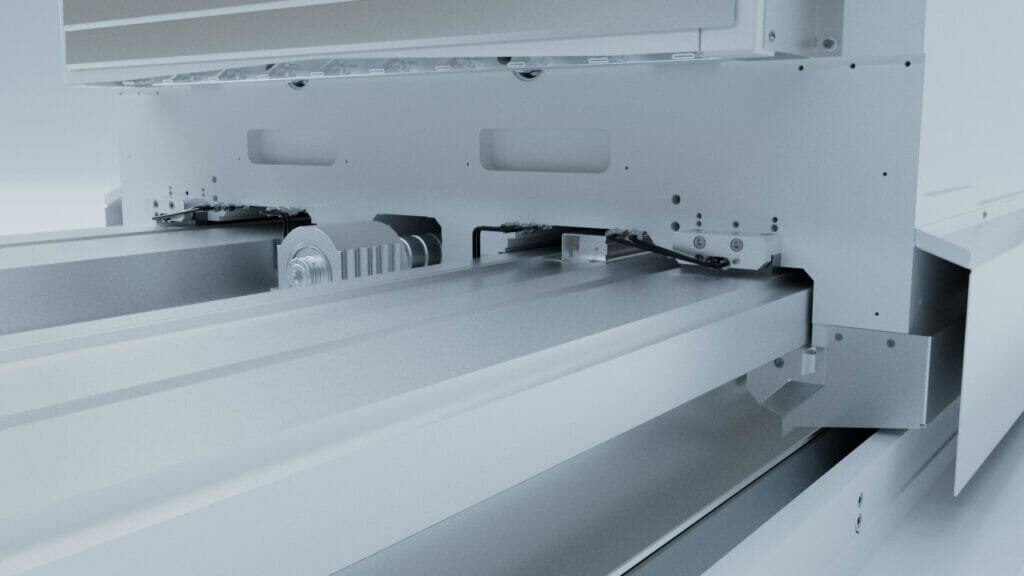
The STC 1250 HD’s hydrostatic guideways
With pallets of 1,000 mm by 1,250 mm capable of accommodating workpieces up to 2,200 mm by 1,950 mm, the machine has a torque rating of 30,00-50,000 Nm, a 80 mm drive chain (compared to the traditional 63 mm) and it can achieve roughing cuts up to four times deeper in titanium than traditional machines.
The in situ Ecospeed F 1540 machining centre is the smallest of the Ecospeed family but like its stablemates, uses Starrag’s Sprint Z3 machining head to impressive effect – the Ecospeed is unmatched at aluminium removal, hence the dramatic time saving of the aerostructure part from 14 hours to just three hours and 40 minutes.
Starrag has been meeting the challenges of landing gear machining since the early ‘90s and today utilises simultaneous multi-axis machining (in one case, on a Droop + Rein FOGS HD mill, simultaneous six-axis operation) to produce the highly-accurate complex shapes in difficult materials, as well as STC and Heckert machining centres for smaller workpieces – the latter undertaking turning as well as milling.
By understanding the challenges and combining highly-efficient machines and tooling, Starrag emphasised that it cannot only improve cycle times but also cut the number of tools used and reduce the loads on those tools – which equates to higher tool life and lower overall tool costs.
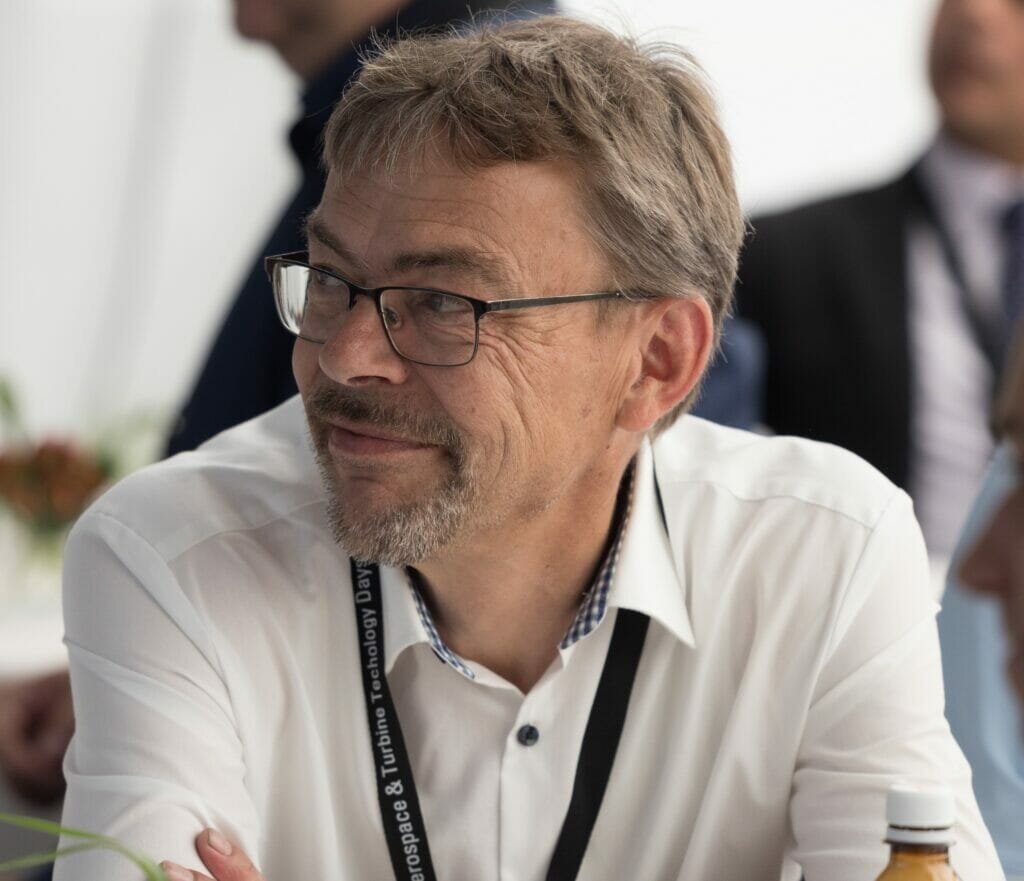
Keynote speaker Dr Matthias Lange
The keynote address at the two-day event by Dr Matthias Lange from Premium Aerotec (formerly part of Airbus) not only highlighted the rising demand for passenger aircraft – forecast to be 40,000 new aircraft for delivery between 2022 and 2041 – but also pinpointed how this best-in-class Tier One aero machinist is driving up sustainability in its own manufacture. This complements the engine manufacturers’ quest for fuel burn reductions of 20%-40% and, for example, improved end-of-life recycling, optimised noise and emissions, and improved design and manufacturing methods as well as more effective and efficient supply chain initiatives.
The company annually produces around five million parts in 25,000 variants at different locations in Germany and Romania, and it uses 21,000 cutting tools on its production lines of Starrag machining centres – 24 machines including Ecospeed machining centres with Z3 heads and with integrated co-ordinate measuring machines processing ‘batch products’, stand- alone machines for urgent parts, seven dedicated to titanium machining, and 11 multi-tasking turn-mill machines for rotational workpieces.
Dr Lange focused on Premium Aerotec’s use of electricity (and photo-voltaics) and said most the highest energy use at the company was in machining, so the target is to reduce this by working closely with suppliers for improved [milling] routines, more effective use of coolant and improved tooling. Optimised feed rates, and better process and tool wear monitoring will all contribute to savings via the consumption of less energy per part, he added.
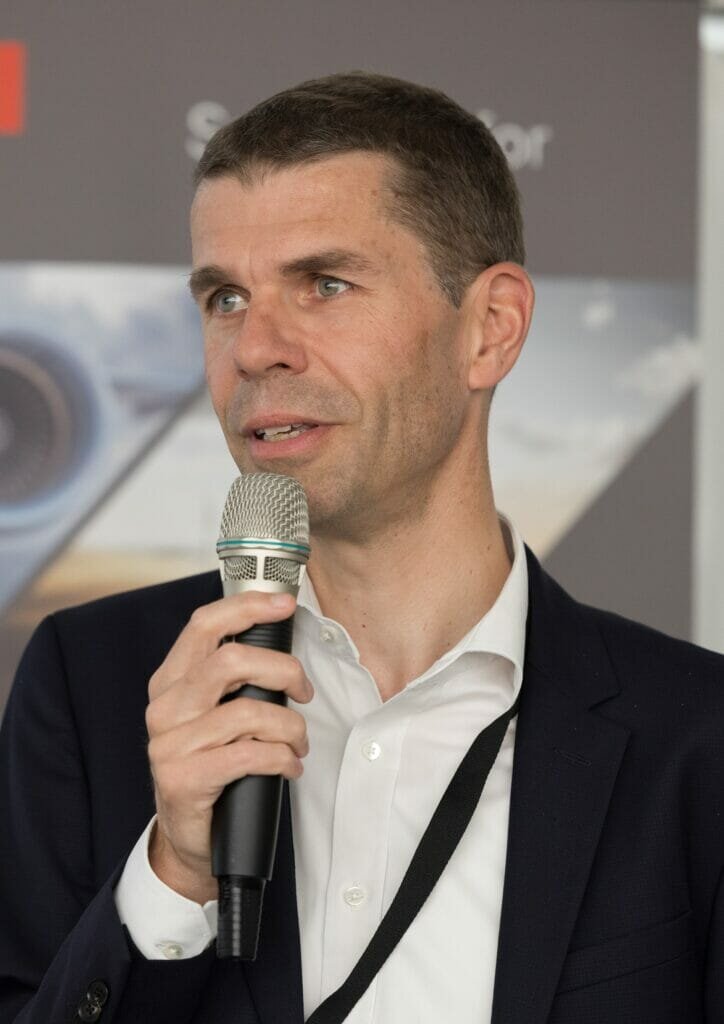
Starrag MD Martin Buyle
While acknowledging Starrag’s inherent aerospace expertise – and pleased that the global aero market is back on track – CEO Martin Buyle also identified one of the ways forward for Starrag and all its product ranges of Berthiez, Bumotec, Dörries, Droop+Rein, Ecospeed, Heckert, Scharmann, SIP, Starrag and WMW machines.
“Starrag historically has never competed on price and quantity – we’ve always focused on competence and reliability – and each of our product ranges is undoubtedly the best in its respective field coupled with our globally-recognised expertise in applications engineering and stand-alone machine systems solutions,” he said, “whether that be in aerospace, transport or wind energy, for example.”
He continued: “Our customers consider the true cost of machine ownership, considering life cycle savings for every component. We are adept at all aspects of helping them achieve manufacturing savings and now it is time for us to ensure that everyone throughout the world – and in every industry sector including defence, medtech and luxury goods, for instance, knows that!”
Company profile – Starrag
High-precision machine tools for greater productivity
Starrag Group is a global technology leader in manufacturing high-precision machine tools for milling, turning, boring and grinding workpieces of metallic, composite and ceramic materials. Principle customers are internationally active companies in the aerospace, energy, transportation and industrial sectors (industrial components, luxury goods, med-tech). In addition to its portfolio of machine tools, Starrag Group provides integrated technology and maintenance services that significantly enhance customer quality and productivity.
The umbrella brand Starrag unites the product ranges Berthiez, Bumotec, Dörries, Droop+Rein, Ecospeed, Heckert, Scharmann, SIP, Starrag, TTL and WMW.
Headquartered in Rorschach/Switzerland, the Starrag Group operates manufacturing plants in Switzerland, Germany, France, the UK and India and has established a network of sales and services subsidiaries in the most important customer countries.
The shares of Starrag Group Holding AG are listed on the SIX Swiss Exchange.

